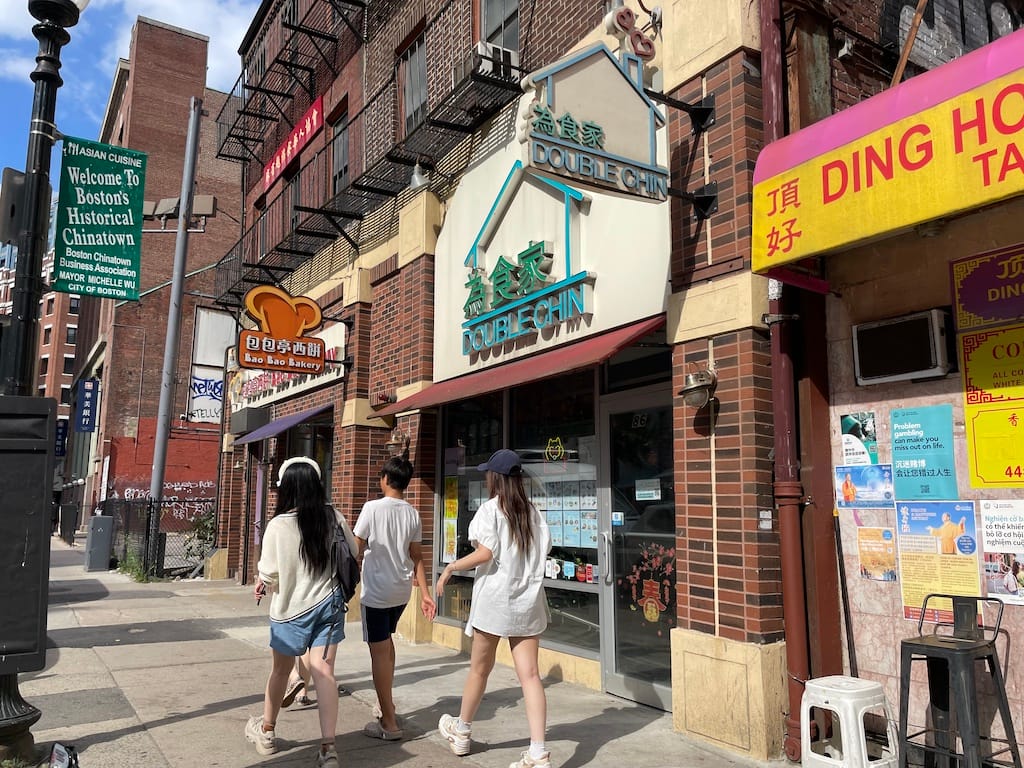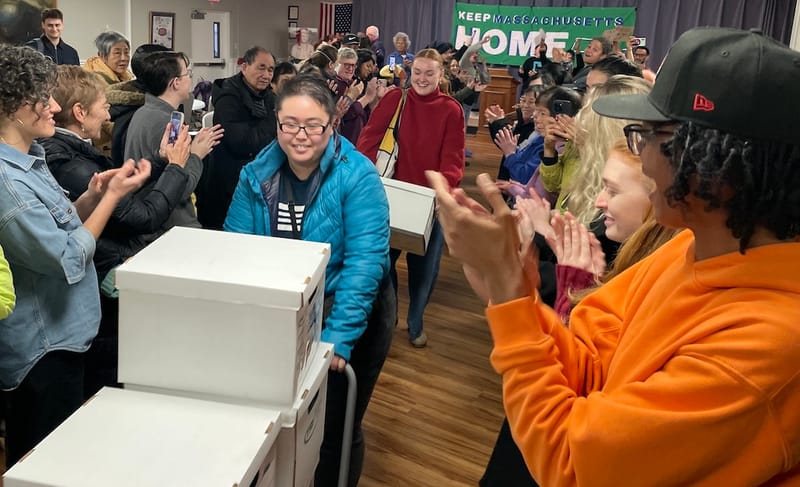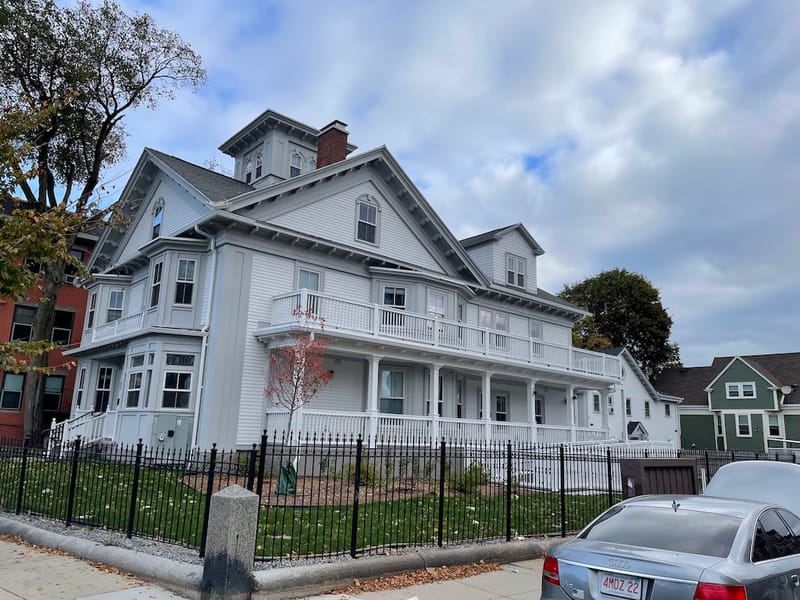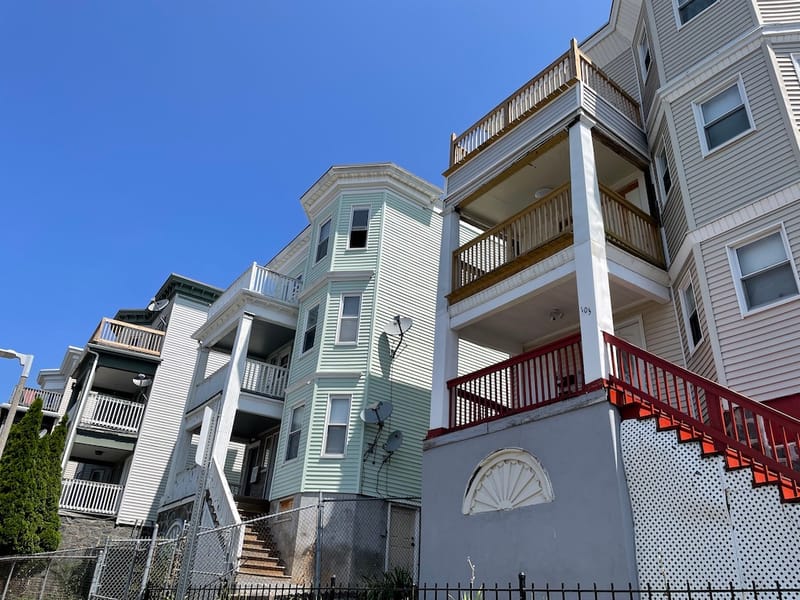City's Chinatown upzoning plans spark fears of displacement
In Boston’s Chinatown, community members are worried about losing their homes and businesses to displacement.
By Nicole Abrams
In Boston’s Chinatown, community members are worried about losing their homes and businesses to displacement.
Late last month, a meeting was convened in the office of the Chinese Progressive Association by Lydia Lowe, Executive Director of the Chinatown Community Land Trust to discuss the proposed rezoning in Chinatown.
At the meeting, Lowe and Chinatown residents discussed their concerns about the city’s plans to allow higher building heights in the community and the effects of upzoning on rents. Property owners, anticipating higher land values as higher heights are allowed, are seeking to sell their properties for higher prices.
In Chinatown’s business district, where the draft plan calls for a height limit of 80 feet, the owner of the four- and five-story buildings at 84 and 86 Harrison Avenue and the adjacent parcel at the corner of Kneeland and Harrison has a purchase and sales agreement to sell for $9 million, according to Lowe, who says the buildings are worth $4.5 million.
“They’re counting on that upzoning to pay two times what the property is worth,” Lowe said.
The owner of the buildings could not be reached for comment.
Tenants say the owner is already demanding higher rents. Gloria Chin, who co-owns Bao Bao Bakery and the Double Chin Restaurant with sister Emily Chin at 84 and 86 Harrison Avenue says she’s facing eviction, with her landlord demanding a rent increase from $14,000 a month to $25,000.
“When you think about who can afford these rents it’s the chains, the Starbucks. That’s not what Chinatown is about.”
Lowe echoed this sentiment, saying, “We really think that the character of Chinatown as a working-class neighborhood and a small family business community, is something that we really want to preserve.”
Xiaohua Qiu and other tenants of the upper floor apartments at 86 Harrison say they fear they will be displaced when the owner sells the building.
“I have very limited English proficiency,” Qiu said, speaking through a translator. “I have to live in Chinatown.”
Lowe says the fears of rent increases and displacement are pervasive in Chinatown and will only get worse if the neighborhood is upzoned to allow greater heights, a move she says would increase property values and rents beyond the reach of most commercial and residential tenants.
Lowe said that the city has been trying to find a compromise between Chinatown residents and developers while crafting the zoning proposal.
“The city is saying we need to bring the two sides together to reach an agreement,” said Lowe at the meeting.
In an email response from the BPDA, they said, “We have been actively engaged in dialogue with Chinatown community members since the release of the draft zoning. Their feedback has been instrumental in shaping the draft zoning and will be reflected in an updated version.”
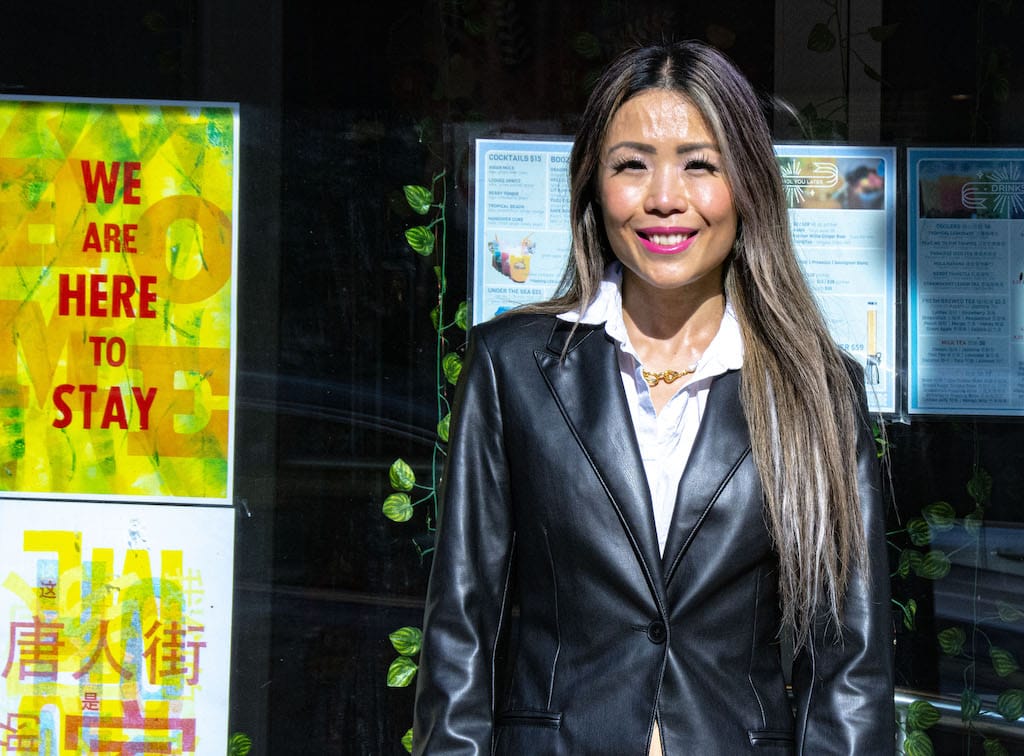
Upzoning has sparked controversy among housing advocates. While many advocates say the greater density it allows will help alleviate housing scarcity, critics say up-zoning increases land values and drives up rents and displacement.
In an interview with The Flipside, Lowe said that the city has convened many meetings with the community as a part of this zoning process. She said that the original zoning proposal that the city released late last year responded to a lot of community concerns, like lowering the proposed height limits for new buildings and addressing displacement and rent speculation.
Lowe, however, said that the city’s proposal to allow increased heights in the commercial district is “very alarming to us.”
“That area actually has some really key locations where tenants and small businesses are at very immediate risk of displacement,” said Lowe.
In response to a question about community members’ concerns that higher building heights will lead to displacement, the BPDA said, “As initially proposed in the November 2024 Draft Rezoning Amendment, additional height is essential to enabling more housing units, specifically affordable housing. Additionally, this updated zoning removes hurdles for many small businesses, including small restaurants, to receive zoning permission or expand.”
Lowe said she hopes that the city does not give in to the lobbying by developers, who she believes are more focused on profit than affordability.
City Councilor Ed Flynn, who represents Chinatown, said that he believes it is important that the voices of the Chinatown are heard, especially immigrants.
“I have heard directly from Chinatown residents and I have met with the Chinatown Residents Association about this proposal. I have been engaged on this subject and I support the residents and their concern about the future of Chinatown,” said Flynn.
Chin said that corporate bubble tea and hotpot chains are proliferating as local restaurants fold.
“I’m just worried about the landscape of Chinatown,” said Chin. “What it will look like. I think it will be very tragic for the community. Local restaurants will be hit the hardest. With more hotels in the area, it will have less of a community feel. I think it will be harder and harder for community businesses to exist.”


